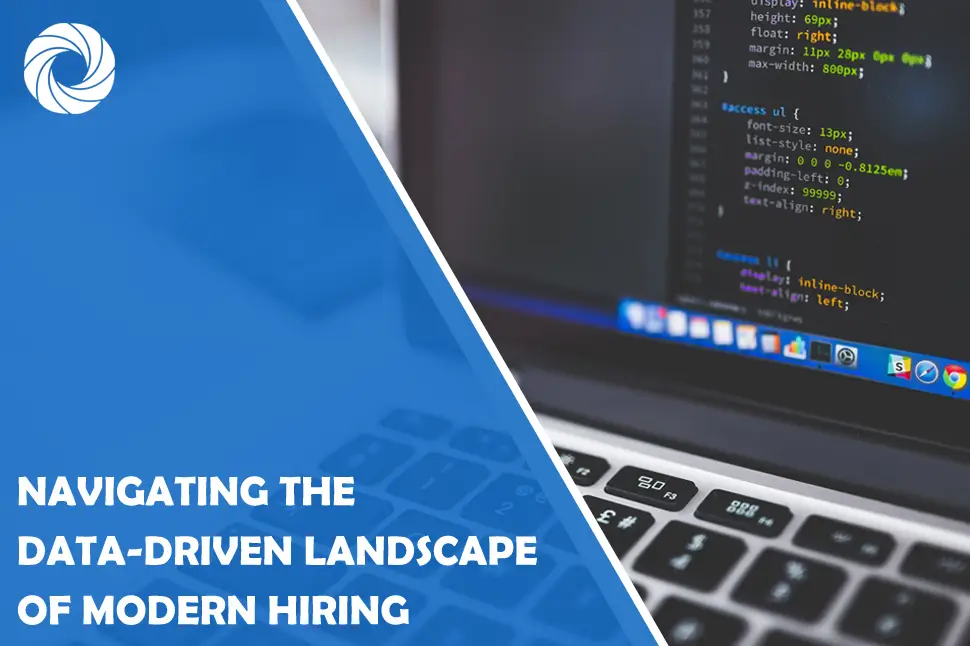Table of Contents
- Introduction to Strategic Recruitment
- The Emergence of Data in Recruitment
- Fundamentals of Data-Driven Recruitment
- Leveraging Analytics for Improved Candidate Sourcing
- Enhancing Candidate Experience Through Data
- Predictive Analytics in Recruitment
- Success Metrics for Data-Driven Recruitment
Key Takeaways
- Understanding the significance of adopting data-driven methods for enhancing recruitment strategies.
- Identifying the pivotal tools and technologies that support data-centric talent acquisition practices.
- Exploring the prospective developments in AI and predictive analytics for the recruitment industry.
Introduction to Strategic Recruitment
The competitive landscape for talent acquisition necessitates a nuanced approach, one where strategic recruitment practices are paramount. In pursuing excellence, identifying the right candidates has transcended beyond mere gut feeling and into analytics. In this transformative era, recruitment software has risen as a beacon of innovation, allowing recruiters to navigate through a wealth of data with precision and foresight. Adopting these digital tools and processes not only streamlines the hiring procedure but also uncovers the full potential of data to inform critical staffing decisions.
The inception of data-driven strategies has marked a shift in the recruitment paradigm – it's tailored to adapt to the rapidly changing job market dynamics and cater to an organization's distinctive needs. With a meticulous focus on intrinsic and extrinsic candidate qualities, these revolutionary methods underscore the essence of matching skill sets with the appropriate company ethos, crafting a harmonious and productive work culture.
Data's dominion over recruitment processes is a testament to its power in shaping the workforce of tomorrow. Through data-driven recruitment, organizations have access to many insights previously obscured by the inherent limitations of conventional hiring methods. This approach starkly contrasts past practices often marred by subjectivity and hunches. Armed with factual and quantitative evidence, recruiters are now better equipped to delve deeper into the potential and propensity of candidates. Implementing intricate algorithms and detailed metrics has rendered data an invaluable ally, ensuring a rich harvest of talent.
Modern entities harnessing the vigor of data analytics are poised to gain a competitive advantage. These avant-garde tactics foster a culture of predictivity, thorough evaluation, and a focus on results that resonate with the organization's core objectives. Insights derived from varied sources such as social media analytics, applicant tracking systems, and employee feedback loops contribute to building a robust recruitment framework that is both innovative and accessible.
Fundamentals of Data-Driven Recruitment
A robust array of data-driven recruitment tools seamlessly integrated into the hiring process is at the bedrock of any advanced recruitment strategy. These technological marvels are the engines that power the analytical endeavors of the human resources team, offering a dashboard of meticulous insights and interpretations. For recruiters eager to wield this arsenal of data, a fundamental understanding of the technologies and methodologies is vital. Their capacity to sift through the noise and extract tangible insights often dictates the success of a recruiting campaign, morphing them into architects of organizational growth.
Leveraging Analytics for Improved Candidate Sourcing
In conquering top-tier talent, the intelligent use of analytics in candidate sourcing is a decisive edge. Infusing data insights into this early recruitment stage revolutionizes how organizations scout for talent. It empowers recruiters to identify the most fertile grounds for candidate engagement, optimizing each interaction for maximum reach and resonance. With many channels available, from social media platforms to industry-specific job boards, analytics guides the allocation of resources, ensuring a precision-targeted recruitment marketing approach.
A meticulous analysis of candidate sourcing data uncovers patterns that aid in refining job listings, amplifying their allure to the right audience. Through the careful study of analytics, a recruitment team can engineer a situation where the job doesn't just find a candidate, but the ideal candidate finds the job.
Enhancing Candidate Experience Through Data
A standout recruitment process is characterized by a stellar candidate experience that is memorable, positive, and reflective of the company's values. Statistical analysis of recruitment touchpoints across the candidate journey provides a treasure trove of insights ripe for optimization. By evaluating every interaction, from application submission to post-interview follow-ups, recruiters can identify opportunities to inject warmth and personalization into the experience. Data becomes a storytelling medium, narrating the unique journey of each candidate through the recruitment process, highlighting pain points and moments of delight alike.
Tapping into candidate data allows for tailoring each communication to mirror job seekers' preferences and expectations.
Anticipating the ebb and flow of talent needs within an organization has never been more crucial than in today's fast-paced business environment. Predictive analytics offers a foretelling lens through which recruitment teams can envisage future hiring requirements and skill set demands. The strategic modeling of workforce trends, driven by these predictive insights, results in a proactive rather than a reactive approach to talent management. The intricacies of the job market become navigable, offering leaders the tools to make data-backed decisions that anticipate rather than react to organizational needs. This prescient view of hiring is not solely based on conjecture but is founded on a robust analysis of historical data, market trends, and internal growth patterns.
Success Metrics for Data-Driven Recruitment
The compass that steers data-oriented recruitment strategies depends largely on the adept selection of success metrics. Defining Key Performance Indicators (KPIs) such as time-to-hire, cost-per-hire, and quality of hire is crucial for calibrated evaluation and optimization of recruitment processes. These metrics function as the barometers of success, allowing an organization to measure the impact of its strategies against tangible outcomes. The thoughtful application of KPI measurement fosters a culture of continual improvement and refinement, ultimately leading to a more dynamic and effective recruitment practice.
Companies immersed in data-driven recruitment can forge ahead with confidence, buoyed by the knowledge that their success can be quantified, celebrated, and enhanced through diligent monitoring.
